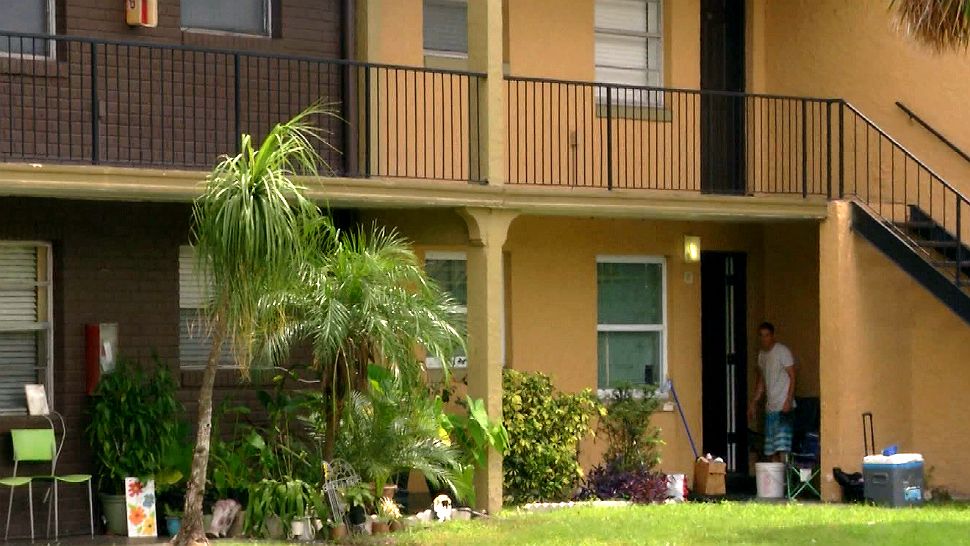KISSIMMEE, Fla. — A new survey shows Central Florida now leads the nation in the least amount of affordable housing.
- Metro Orlando as 13 affordable units for every 100 needy families
- Upfront costs exacerbates ability to rent apartments
- Orange County starts affordable housing taskforce
- PREVIOUS STORY:
- Mayor Launches Plan to Improve Affordable Housing
- Federal Funding to Help Affordable Housing Crisis in Central Florida
- Mixed-Income Developments in Orlando Poised to Provide Affordable Housing
- Cost of Living on the Rise in Orlando, Minimum Wage Remains the Same
- Osceola Sustainability Plan Seeks to Fix Affordable Housing Crisis
National Low Income Housing Coalition released their 2019 report, showing that the Orlando metro area has just 13 affordable housing units for every 100 families at or near the poverty level.
NLIHC defines the Orlando metro area to include Orange, Osceola, and Seminole counties.
The study shows that the affordable housing crisis is more severe in the Orlando Metropolitan Area compared to other cities that include Las Vegas (Nevada), Los Angeles (California), and Dallas (Texas).
”We knew we had a crisis last year,” said Shelley Lautner, CEO of Central Florida Commission on Homelessness. “Last year, the same study we came in number two, but what this tells us is we’re getting worse.”
Sitting in a dimly-lit motel room, Daniel Fox rummages through the mounting pile of bills.
Fox stares at a single hospital bill totaling more than $10,000. A debt he is unlikely ever to repay.
“Hoping next month gets better and it never does,” Fox said.
Riddled with health problems and unable to afford medication, Fox says he still feels grateful to have a roof above his head.
For Fox and his son, the Kissimmee motel room is home. It’s all they can afford.
They are among the growing number of families forced to live on the streets or bounce from motel to motel.
“It’s like we hit a block wall,” Fox said.
Trouble started for Fox just before the economic downturn in 2007. In 2007 the bank foreclosed on his home, his wife died in 2014 after a series of strokes, and the following year health problems forced him to retire from his job at Disney.
“We ran out of money and became homeless,” Fox said. He and his son started living on the streets.
“We would sleep anywhere we could until the cops would run us off and I asked ‘where can we go,” Fox said.
It wasn’t until June 2018 that the government approved Fox’s application for social security disability. That now provides less than $2,000 a month for Fox and his son to stay month to month in area motels and cover a few bills.
Fox said he has tried to get into area apartments that on the surface seem to have affordable prices, but is then turned away when he cannot afford the upfront costs that include deposits, last month’s rent, and other fees. Those costs can sometimes be three to four times the amount of monthly rent.
One idea Fox has to make Central Florida more affordable is to establish a funded program that assists with those upfront costs.
One reason why affordable housing crisis may continue to be growing is that the area’s population is as well, by some estimates of up to 1,000 new people moving to Central Florida every week.
“It is the ying and yang, it’s opposite of what’s causing our great rapid growth that’s putting a stress on some of the issues we knew we already had, but it’s a problem that we can’t keep pace with and one of those is housing,” Lauten said.
County and city leaders have tried over the past few years to come up with solutions to the problem, in addition to just building more affordable housing developments.
Last week Orange County Mayor Jerry Demings announced the creation of a new 38-member “Housing For All Task Force.” Their goal will be to develop a final-action plan by Fall 2019.
“It’s still not enough,” Lauten said. “We have so much more we need to do to make sure we’ve got not just affordable housing, but housing people can afford.”
Lauten says there are multiple ideas that together can help turn the tide on the crisis. That includes a focus on tiny homes and container houses, some of which are in use in places like Austin, Texas.



